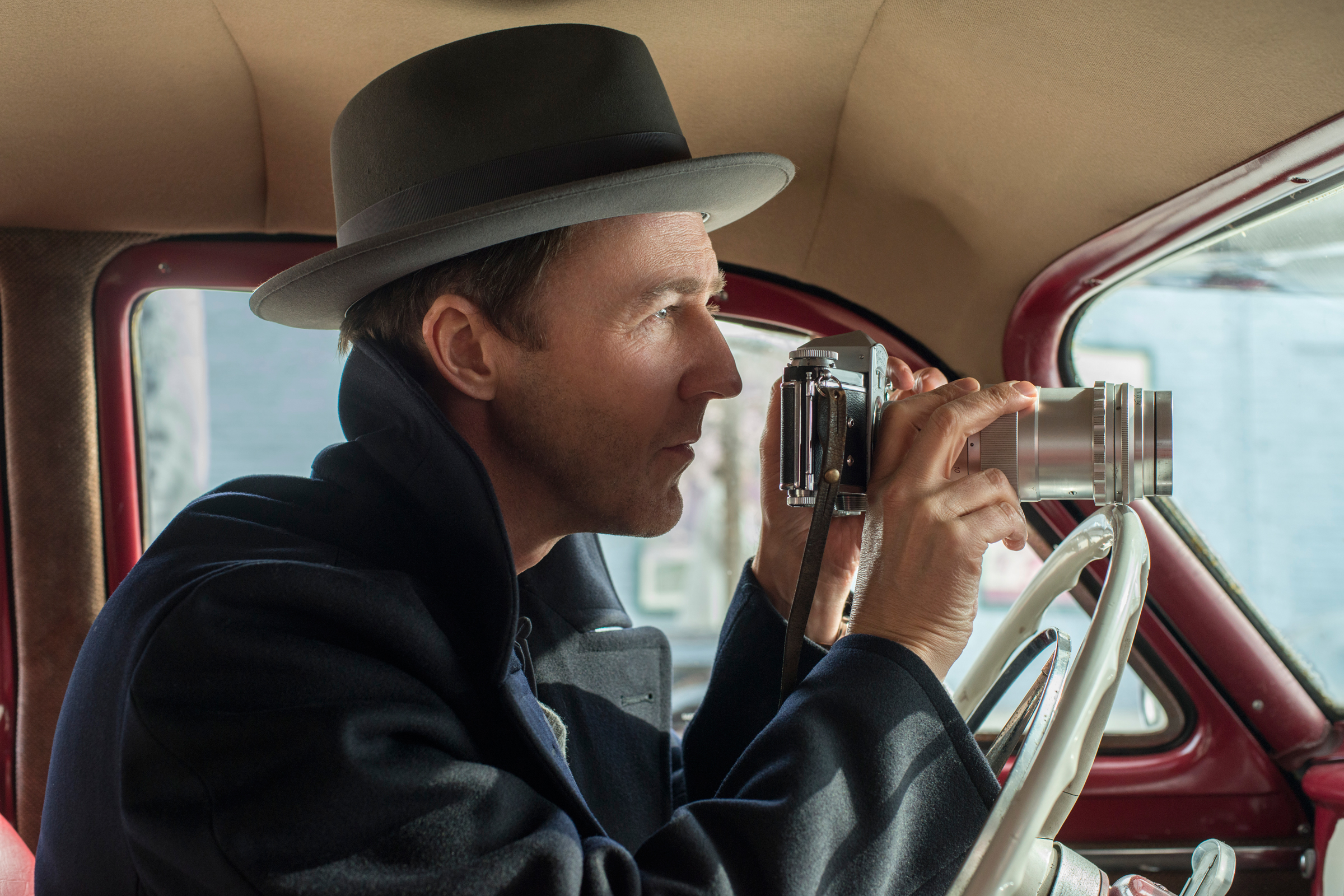by Michael Frank

Edward Norton has accomplished many things. His first major film role in Primal Fear landed him an Oscar nomination. He’s acted in over 40 movies since, earning himself two more Oscar noms, a Golden Globe, an Emmy nomination, and dozens of awards around the globe. His accomplishments speak for themselves. Norton’s new film though, Motherless Brooklyn, won’t add much to that list, though, as he whiffs on a huge swing...
His directorial debut Keeping the Faith premiered in 2002 and almost two decades later, Norton’s sophomore effort has hit theaters. Motherless Brooklyn, his first writing credit, is a nearly two-and-a-half hour noir epic, a crime-drama adapted from a book of the same name by Jonathan Lethem. Norton’s ambitions climb higher and higher throughout the runtime, and it’s clear the movie is a passion project, a story he’s been wanting to tell for quite some time.
Motherless Brooklyn swings for the fences, there’s no doubt about that. Norton changes the setting to the 1950s, as the novel takes place in modern times. He stars as Lionel Essrog, a small-time detective with Tourette’s Syndrome who attempts to uncover a massive conspiracy within New York City. The film sprawls into different boroughs, interconnecting stories, and characters, including underused actors Bruce Willis and Cherry Jones, that scarcely are necessary.

Norton's Lionel, feels trite and caricatured. His endless ticks and shouts conjure up laughs in the audience, which (hopefully) cannot be the desired effect. Norton’s portrayal is problematic on multiple fronts, as Tourette’s is far from a joke, and shouldn't be employed as one. Beyond Norton, much of the cast succeeds, with Willam Dafoe, Alec Baldwin, and Bobby Cannavale, as an all-too-believable lowlife, churning out solid performances. Baldwin and Dafoe shine the brightest though, and the film is much better anytime those two are involved.
Baldwin effectively plays a version of his SNL Trump persona, but to incredible effect, stalking power and greed like a lion in a room of gazelles. His conversation about power with Norton towards the end of the film, while wearing a bathrobe, strikes a definite chord, as the strongest scene in the film. Dafoe plays the helpless younger brother, who needs approval and seeks attention. His frenetic energy matches Baldwin’s composure in a special way.

The backdrop of New York City might be tired, but still holds as an effective piece of Motherless Brooklyn. The city continues to be striking onscreen, and the feel of the 1950s is unshakeable, almost to a fault. It all likely cost a fortune, and Norton’s love for New York glows bright as the film saunters through the hours. But as political protests, jazz owners, bridge builders, and property conspiracies intersect at an alarming rate, and Norton struggles to weave the storylines together. The messiness of the story contributes to the film’s lack of punch in the moments that (finally) matter. No reason to sugarcoat it; Motherless Brooklyn requires serious patience of its viewers.
You can see Norton’s effort and passion throughout the film, as his love for this adapted story and its characters dots the runtime. Moments of magic occur only sporadically, as the film cannot string together enough of them for the movie to be considered a great piece of cinema. With some strong supporting performances, surprisingly good jazz music, uneven plotlines, Norton’s film jumps from unwatchable to passable to enjoyable and back to unwatchable from scene to scene. Motherless Brooklyn certainly won’t win any big awards or make any top 10 films of the year lists, but it serves as an imperfect love letter to an interesting story, one that likely should’ve remained on the bookshelf.